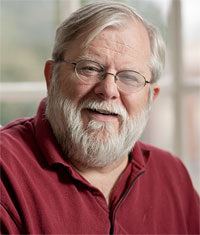The inaugural address: Obama’s challenge
The nation — and the world — anticipate the inaugural address on January 20. We are eager to hear what Barack Obama will say as he moves from president-elect to president-in-fact. Once again, Obama stands at a crossroads. As he did at crucial points in the campaign, he will need to speak to express his vision of the next four years.
An inaugural address is a genre of rhetoric — that is, a distinct sort of speech that has its own rules and objectives. The speech that starts a president’s first term is a unique opportunity to do important political business through speaking and inspiring before undertaking the messier work of legislating and governing.
On January 20 Obama, the politician and persuader, will confront a nation that looks at his first inaugural address with three sets of expectations. Meeting any one of those standards would constitute success. Deep down, whether fair or not, many citizens want and expect him to satisfy all three tests. These tests are rooted in America’s rhetorical history.
According to a poll of communication scholars, the three most significant American speeches of the last century were Dr. Martin Luther King’s address from the March on Washington titled “I Have a Dream,” John F. Kennedy’s Inaugural Address and Franklin Delano Roosevelt’s First Inaugural. These are speeches number one, two and three for the last century. Obama is tasked in the popular mind with bringing all three classics to life in his inaugural.
For some listeners, Obama should be the future echo of King’s “Dream” that set the standard for rhetoric in 20th century America. After all, Obama advocates a new kind of national unity; like King, he is black and eloquent. He too has urged America to embrace change. The speech brims with memorable lines. Here are two: “And so even though we face the difficulties of today and tomorrow, I still have a dream. It is a dream deeply rooted in the American dream” and “With this faith, we will be able to transform the jangling discords of our nation into a beautiful symphony of brotherhood.”
Others will see Obama wearing the mantle of John Kennedy as a vibrant young leader bringing energy, children and a vivacious spouse into the White House. The most famous line from this inaugural: “Ask not what your country can do for you, ask what you can do for your country.” Obama too wants to promote concern for our common destiny and to rein in unseemly expressions of self-interest.
Reaching back one more generation, there are obvious links between the economic challenges confronting Obama and those the nation faced at the start of Franklin Roosevelt’s first term. Roosevelt’s whirlwind of legislative activity in the first hundred days made tangible his energy and vision. Roosevelt grasped the fact that reanimating public confidence must precede specific proposals; this renewal will be Obama’s goal as well. While he did not mince words about the nation’s situation, FDR was clear in naming the real enemy and does so in his third paragraph: “So, first of all, let me assert my firm belief that the only thing we have to fear is fear itself — nameless, unreasoning, unjustified terror which paralyzes needed efforts to convert retreat into advance.”
But Obama is not King, Kennedy or Roosevelt; this is not 1963, 1961 or 1933. Still those voices and those times are present now in our national consciousness. Obama ran a masterful campaign to win the office. Nevertheless, the inaugural address is the first real step he can take to join this pantheon of national leaders. How will he assume the mantle of these historic figures and speak to the nation about a future yet to be created? The American people see in these classics a prescription for today: King’s dream and the faith to bring it about; Kennedy’s dedication and selflessness; FDR’s courage and confidence.
Obama’s first challenge as president is to deliver a modern message that incorporates those values. America yearns for inspiration — for a dream, for brotherhood, for meaningful personal and national purpose, for courage in the face of fear and terror. Mr. Obama: the stage is yours.
John Llewellyn joined the Wake Forest faculty in 1990 and teaches courses on rhetoric and organizational communication.




